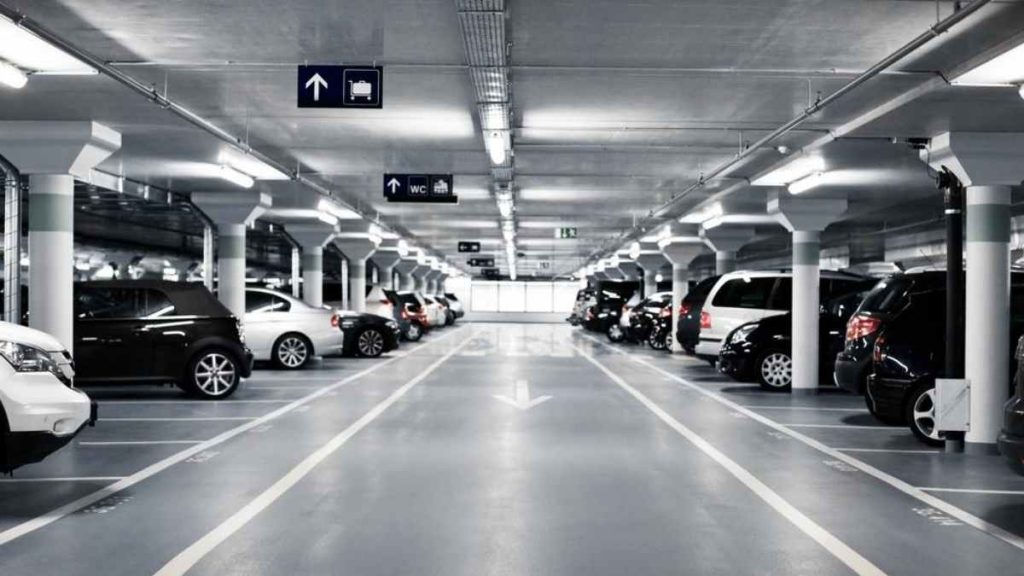Car park management has long been a challenge, with issues such as congestion, inefficient space utilisation, and customer dissatisfaction plaguing the industry. However, with the rapid advancements in technology, a new era of car park management is dawning. From smart parking systems to real-time data analytics, technology is transforming the way car parks are operated, offering enhanced efficiency and an improved customer experience. In this article, we will explore the various ways in which technology is shaping the future of car park management and how it is revolutionising the industry.
Smart Parking Systems: Revolutionising Car Park Management
The emergence of smart parking systems is a game-changer in car park management. These systems utilise a combination of sensors, cameras, and data analytics to efficiently manage parking spaces. With the help of sensors embedded in parking spots, real-time information about the availability of spaces can be collected and displayed to drivers through mobile applications or electronic signage. This minimises the time spent searching for parking and reduces congestion.
Additionally, smart parking systems enable the optimisation of parking space utilisation. Through the analysis of data, algorithms can determine the most efficient parking arrangement, considering factors such as occupancy rates, peak hours, and user preferences. This ensures that parking spaces are utilised to their fullest capacity, maximising revenue for car park operators.
Enhancing Efficiency with Real-Time Data and Analytics
Real-time data and analytics play a crucial role in improving the efficiency of car park management. By collecting and analysing data on parking occupancy, duration, and turnover rates, operators can gain valuable insights into usage patterns and make informed decisions. This includes adjusting pricing structures, optimising staff allocation, and implementing dynamic parking policies.
Data analytics can also help predict future demand and allocate resources accordingly. By utilising historical data and external factors such as events or weather forecasts, car park operators can proactively plan for busy periods, ensuring sufficient availability of parking spaces and preventing congestion.
Customer Experience: From Convenience to Personalisation
In the future, car park management will increasingly focus on enhancing the customer experience. Technology plays a key role in achieving this by providing convenient and personalised parking solutions. For instance, mobile applications can allow users to easily locate and reserve parking spaces in advance, eliminating the frustration of driving around searching for a spot. Some apps even offer features like navigation to the reserved spot and integration with payment systems.
Moreover, personalised parking experiences can be tailored to individual preferences. By leveraging technology, car park operators can offer loyalty programs, preferred parking options, and customised notifications. This not only enhances customer satisfaction but also builds brand loyalty.
Automated Payment and Access Systems: Streamlining Operations
Traditional payment and access systems in car parks are often time-consuming and prone to errors. However, technology offers automated solutions that streamline these processes, improving efficiency for both customers and operators. Mobile payment systems, contactless payment options, and licence plate recognition systems eliminate the need for physical tickets or cash transactions, making payment and access seamless.
Automation also reduces operational costs by minimising the need for manual intervention. With technology-driven systems, staffing requirements can be optimised, reducing labour costs and enabling staff to focus on more critical tasks such as customer service and security.
Improving Safety and Security with Technology
Safety and security are paramount in car park management, and technology plays a vital role in ensuring a secure environment for users. Surveillance cameras, licence plate recognition systems, and access control mechanisms help deter and identify potential security threats. Integration with security systems allows for real-time monitoring and immediate response to incidents.
Technology also aids in enforcing parking regulations and improving compliance. Automated parking violation detection systems help identify vehicles that violate parking rules, enabling efficient parking enforcement and reducing the burden on manual monitoring. This ensures a fair and orderly parking environment for all users.
Sustainable Solutions: Green Initiatives in Car Park Management
The future of car park management is not just about efficiency and customer experience but also about sustainability. Technology can contribute to green initiatives in several ways. For instance, the integration of electric vehicle (EV) charging infrastructure in car parks promotes the adoption of eco-friendly transportation. Smart systems can allocate parking spaces equipped with charging stations, making EV charging convenient for users.
Furthermore, energy-efficient lighting systems, such as LED lights, can be implemented in car parks to reduce energy consumption. Solar panels can also be installed on car park roofs to generate clean energy, powering the facility and even feeding excess electricity back into the grid. These sustainable initiatives not only contribute to environmental conservation but also enhance the reputation of car park operators as responsible corporate citizens.
The Role of Artificial Intelligence (AI) and Internet of Things (IoT) in Car Park Management
Artificial Intelligence (AI) and the Internet of Things (IoT) are two powerful technologies that are revolutionising car park management. AI algorithms can analyse vast amounts of data to predict parking patterns, optimise operations, and offer personalised services. For example, AI-powered chatbots can assist customers in finding available parking spaces, answering queries, and providing real-time updates.
The IoT enables the seamless integration of devices and systems, creating a connected car park ecosystem. This allows for real-time communication between parking sensors, cameras, payment systems, and mobile applications, enabling a smooth and frictionless parking experience. IoT-based sensors can monitor occupancy, traffic flow, and environmental conditions, facilitating data-driven decision-making and efficient resource allocation.
The Future of Car Park Management
The future of car park management is undoubtedly driven by technology. From smart parking systems and real-time data analytics to personalised customer experiences and automated payment solutions, technology is revolutionising the industry, enhancing efficiency, and improving the overall customer experience. With sustainable initiatives and the integration of AI and IoT, car park management is evolving into a more connected, secure, and environmentally friendly domain. As we embrace these advancements, we can expect a future where car park management becomes seamless, convenient, and tailored to the needs of both operators and customers.




